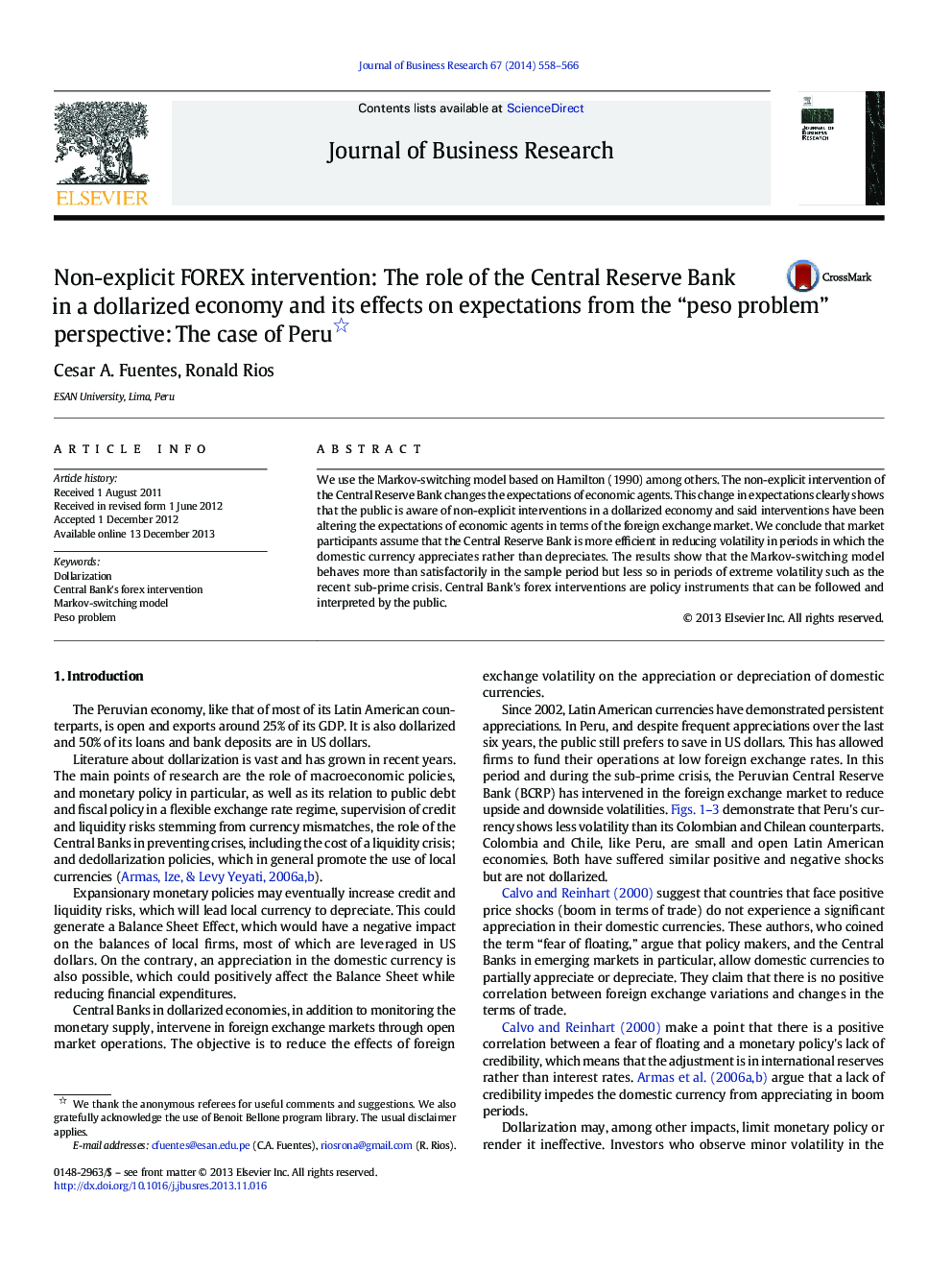| کد مقاله | کد نشریه | سال انتشار | مقاله انگلیسی | نسخه تمام متن |
|---|---|---|---|---|
| 1017562 | 940306 | 2014 | 9 صفحه PDF | دانلود رایگان |

We use the Markov-switching model based on Hamilton (1990) among others. The non-explicit intervention of the Central Reserve Bank changes the expectations of economic agents. This change in expectations clearly shows that the public is aware of non-explicit interventions in a dollarized economy and said interventions have been altering the expectations of economic agents in terms of the foreign exchange market. We conclude that market participants assume that the Central Reserve Bank is more efficient in reducing volatility in periods in which the domestic currency appreciates rather than depreciates. The results show that the Markov-switching model behaves more than satisfactorily in the sample period but less so in periods of extreme volatility such as the recent sub-prime crisis. Central Bank's forex interventions are policy instruments that can be followed and interpreted by the public.
Journal: Journal of Business Research - Volume 67, Issue 4, April 2014, Pages 558–566